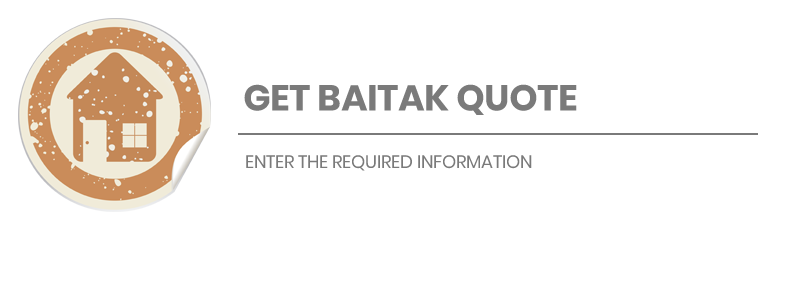Protection in Islam
There are numerous references to Ta’awun and Takaful in the Quran in the context of co-operation and solidarity for the good of society. One widely quoted reference is from sura al-Maidah, as follows:
“And help one another in righteousness and piety and do not help one another in evil deeds and enmity” (Al Quran : Al Maidah 2)
One of the approaches to social help and assistance practiced in Islam that relates to the first Constitution of Medina, stated that, “the emigrants from among the Quraish shall be responsible for their ward and shall pay the blood money in mutual collaboration and shall secure the release of their prisoners by paying their ransom themselves, so that the mutual dealings between the believers be in accordance with the principles of recognised goodness, justice and mutual responsibility”.
Where a person inflicts bodily injury or homicide it becomes incumbent upon him or, as mutual responsibility, upon a group of people representing him, to compensate the injured party in cash or kind. This compensation is called “diya”. Where homicide is intentional, the diya or blood money is payable by the person committing that act. A third party (aqila) pays blood money only where the act is unintentional or where it is offered by the aqila on voluntary basis. (Malik Al-Muwatta)
A fatwa by Dr. Yusuf Al-Qardhawi states that Islamic insurance may exist in a condition where each participant contributes into a fund used to support one another.
Islam aims at establishing a social order under universal brotherhood. The underlying concept is that of mutual co-operation and help. The Prophet (pbuh) stressed:
In mutual compassion, love and kindness you will find the faithful like a body, so that if one part feels pain, the whole body responds with wakefulness and fever.
A Muslim is the brother of another Muslim; he neither wrongs him, nor leaves him without help, nor humiliates him’
Other references to Ta’awun and Takaful in the Quran are as follows:
Protection
“(Allah) who prepares nourishment to prevent the fear of hunger and saves / puts at peace those who fear” (Al Quran : Al-Quraisy 106:4)
Co-operation
A Muslim is brother of a fellow-Muslim. He should neither commit oppression upon him nor ruin him and he who meets the needs of a brother, Allah would meet his needs and he who relieves his brother from hardship, Allah will relieve him from the hardships to which he could be put on the Day of Resurrection. Sahih Muslim
Takaful – sharing of responsibility
The similitude of believers in regard to mutual love, affection, fellow-feeling is like that of a body, when any limb of it aches, the whole body aches because of sleeplessness and fever Sahih Muslim
A believer is like a brick for another believer, the one supporting the other Sahih Muslim
And hold fast, all together, by the rope which Allah (stretches out for you), and be not divided among yourselves; and remember with gratitude Allah’s favour on you; for you were enemies and He joined your hearts in love, so that by His grace you became brethren; and you were on the brink of the pit of fire, and he saved you from it thus does Allah make His signs clear to you; that you may be guided. (AlQuran – Al Imran 103)
The believers are but a single brotherhood: so make peace and reconciliation between your two (contending) brothers; and fear Allah, that you may receive mercy. (AlQuran – Al Hujurat 10)
(Their bearings) on this life and the hereafter they ask you concerning orphans. Say: the best thing to do is what is for their good; if you mix their affairs with yours, they are your brethren; but Allah knows the man who means mischief from the man who means good. And if Allah had wished He could have put you into difficulties: he is indeed exalted in power, wise. (AlQuran – Al Baqarah 220)
But those who before them had homes (in Medina) and had adopted the faith, show their affection to such as come to them for refuge, and entertain no desire in their hearts for things given to the (latter), but give them preference over themselves, even though poverty was their (own lot) and those saved from the covetousness of their own souls; they are the ones that achieve prosperity. (AlQuran – Al Hashr 9)
Serve Allah and join not any partners with him and do good to parents, kinsfolk, orphans, those in need, neighbours who are near, neighbours who are strangers, the companion by your side, they wayfarer (you meet) and what your right hands possess: for Allah loves not the arrogant, the conceited. (AlQuran – An Nisaa 36)
REFERENCE TO THE QURAN REGARDING BASIC REQUIREMENTS OF TAKAFUL
The system of takaful must avoid riba, maisir (the gambling element) and gharar (uncertainty).
Avoiding Riba
The funds of a conventional insurance company are mainly in investment activities that contravene the rules of Sharia. They invest in companies that may be involved in unethical activities and build their business through participating in riba. Also, loans may be granted on insurance policies and interest charged for that loan. This is not permitted in a takaful contract. Riba is prohibited in Islam and stated below are references in the Quran to this effect.
“Those who eat riba (usury) will not stand (on the Day of Resurrection) except like the standing of a person beaten by Shaitan (Satan) leading him to insanity. That is because they say, “Trading is only like riba or usury, whereas Allah has permitted trading and forbidden riba. So whosoever receives an admonition from his Lord and stops eating riba shall not be punished for the past; his case is for Allah (to judge): but whoever returns to riba, are dwellers of the Fire – they will abide therein. ” Al-Quran, Al-Baqarah (2).- 275
“0 you who believe! Be afraid of Allah and give up what remains (due to you) from riba (from now onward), if you are (really) believers. And if you do not do it, then take notice of war from Allah and His Messenger but if you repent, you shall have your capital sums. Deal not unjustly (by asking more than your capital sums), and you shall not be dealt with unjustly (by receiving less than your capital sums)” Al-Quran, Al-Baqarah (2): 278-279
Avoiding Maisir
Maisir refers to gambling and to any form of business activity where monetary gains are derived from mere chance, speculation and conjecture. For example uncertainty of the timing of benefits in a pure life insurance contract creates an element of maisir. The basis of compensation must be clearly pre-defined. In its absence, the proceeds of a life insurance policy may not relate to premiums paid up to the date of death.
The Hadith of Sahih Muslim narrates that the Prophet (pbuh) forbade the sale called “Habal-Ala Habala” which was a kind of sale where one would pay the price of a she-camel which was not yet born but would be born as the immediate offspring of the expectant she-camel.
Al-Maisir is referred to in the Quran as follows:
“O you who believe intoxicants (all kind of alcoholic drinks) and gambling, and Al-Ansab (ways for seeking luck) are an abomination of Shaitan (Satan). So avoid strictly all that (abomination) in order that you may be successful.” Al-Quran, AI-Maidah (5):90
Avoiding Gharar
An element of uncertainty or al-gharar may exist in both life and general insurance policies. One of the basic rules of a contract in Islam is that it must be clear (mu’ad’alaih). In a conventional contract the insured or the policyholder agrees to pay a certain sum of premium but it is never clear to him or her how the benefit of life cover is derived
According to Islamic jurisprudence, the element of gharar invalidates a contract if –
-
it is incorporated in a financial contract
-
its contractual impact is very large and substantial
-
there is no genuine need for such contract
A contract is not invalidated due to al-gharar if the following conditions are upheld in the contract:
-
insurance cover is genuinely required to safeguard insured’s interests
-
such protection cannot be provided other than through insurance insurance avoids uncertainty through contract of takaful based on cooperative principles










